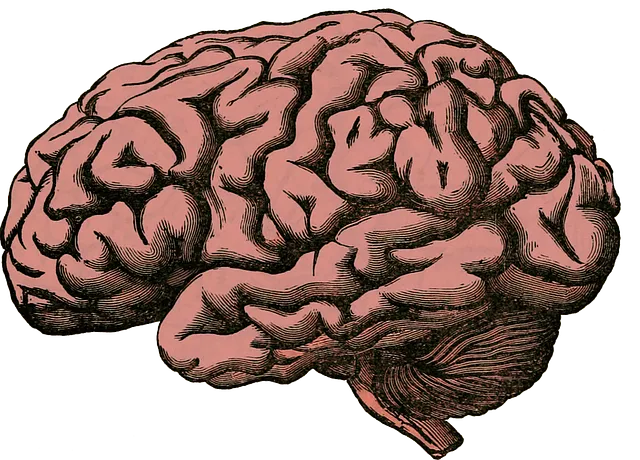Lone Tree Kaiser Permanente leads in crisis intervention with dedicated mental health services, accessible 24/7. Their comprehensive CIT training equips professionals with de-escalation, cultural competency, and trauma-informed care skills. Through role-playing scenarios, they promote emotional regulation techniques. This proactive approach fosters employee well-being, organizational resilience, and community mental wellness, revolutionizing workplace support for better long-term outcomes.
In today’s complex landscape, crisis intervention teams (CITs) play a vital role in mental health care. Effective CITs can de-escalate critical situations and provide essential support. This article explores the crucial aspect of training for these teams, highlighting key components through a case study of Lone Tree Kaiser Permanente’s innovative mental health services approach. We delve into the benefits and significant impact of implementing well-trained crisis teams, focusing on improved patient outcomes and enhanced community safety.
- Understanding Crisis Intervention Teams: Their Role in Mental Health Care
- The Importance of Training for Effective Crisis Response
- Key Components of a Comprehensive Crisis Intervention Team Training Program
- Lone Tree Kaiser Permanente's Approach to Mental Health Services: A Case Study
- Benefits and Impact of Implementing Well-Trained Crisis Teams
Understanding Crisis Intervention Teams: Their Role in Mental Health Care

Crisis Intervention Teams (CITs) play a pivotal role in mental health care, offering immediate support and stabilization to individuals experiencing crises. These teams, often composed of healthcare professionals, first responders, and community members, are trained to assess and de-escalate high-risk situations. At Lone Tree Kaiser Permanente, for instance, the dedicated mental health services number facilitates 24/7 access to CITs, ensuring swift response times.
The primary goal of CIT training programs is to equip individuals with the necessary skills to handle acute mental health crises effectively. This includes coping skills development, crisis de-escalation techniques, and trauma-informed care practices. Moreover, these programs often incorporate public awareness campaigns development and mental wellness podcast series production to educate communities about recognizing signs of distress and available support systems.
The Importance of Training for Effective Crisis Response

Effective crisis response requires well-trained professionals equipped with the necessary tools to handle sensitive situations. Training programs play a pivotal role in preparing individuals to manage crises, especially those related to mental health issues. Lone Tree Kaiser Permanente’s mental health services number, for instance, highlights the growing demand for such specialized support.
Comprehensive training equips participants with coping skills development, enhancing their ability to remain calm and composed during emergencies. This includes learning de-escalation techniques, active listening, and effective communication strategies—essential elements for building confidence in handling critical situations. By investing in crisis intervention team training, organizations foster a culture of mental wellness, ensuring that their staff are prepared to offer timely and compassionate support, ultimately saving lives.
Key Components of a Comprehensive Crisis Intervention Team Training Program

A comprehensive Crisis Intervention Team (CIT) training program is a multifaceted approach designed to equip healthcare providers with essential skills for managing psychological crises effectively. At Lone Tree Kaiser Permanente, mental health services are at the core of their commitment to community well-being. A robust CIT training curriculum should incorporate several key components.
Firstly, it must emphasize cultural competency training, ensuring that providers understand and respect diverse cultural perspectives on mental health. This fosters trust and enhances the quality of care delivered. Secondly, integrating Mind Over Matter principles into the training equips participants with techniques for promoting emotional regulation, a crucial aspect of crisis intervention. Lastly, practical scenarios and role-playing exercises should be central to the program, enabling healthcare providers to apply learned strategies in realistic settings, whether dealing with individuals experiencing acute distress or implementing long-term support plans.
Lone Tree Kaiser Permanente's Approach to Mental Health Services: A Case Study

Lone Tree Kaiser Permanente has pioneered an innovative approach to mental health services, demonstrating a commitment to employee well-being and organizational resilience. Their program focuses on proactive support and includes various initiatives like mental wellness coaching programs, social skills training, and self-awareness exercises. By integrating these strategies into the workplace, they aim to address mental health concerns early and prevent more severe issues from arising.
This holistic approach not only benefits individual employees but also contributes to a healthier and more productive work environment. The success of Lone Tree Kaiser Permanente’s initiative highlights the potential for other organizations to adopt similar strategies, fostering a culture that prioritizes mental wellness and encourages open discussions around sensitive topics.
Benefits and Impact of Implementing Well-Trained Crisis Teams

Implementing well-trained crisis intervention teams can significantly benefit organizations and communities as a whole. Lone Tree Kaiser Permanente’s mental health services number is a prime example of how essential these programs are in ensuring swift and effective support during crises. Trained teams can quickly assess and de-escalate high-risk situations, providing immediate relief to individuals in distress. This proactive approach not only reduces the impact of acute incidents but also fosters an environment where people feel safer and more supported.
Well-designed crisis intervention training programs focus on various aspects, including emotional intelligence and resilience building. Mental Health Education Programs that prioritize these skills equip team members with the tools to understand and respond to complex emotional needs. By enhancing emotional intelligence, teams can better connect with individuals in crisis, ensuring tailored and compassionate support. This holistic approach not only benefits those in immediate need but also contributes to long-term mental health and wellness within the community.
Crisis intervention team training programs, such as the comprehensive approach implemented by Lone Tree Kaiser Permanente, are vital for enhancing mental health care. By equipping professionals with the necessary skills and knowledge, these programs ensure effective crisis response, ultimately improving patient outcomes and community well-being. The success of Lone Tree’s initiative underscores the importance of investing in thorough training, leading to a more robust and responsive mental health service ecosystem.






